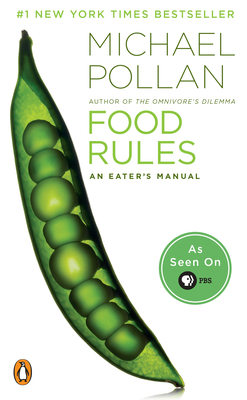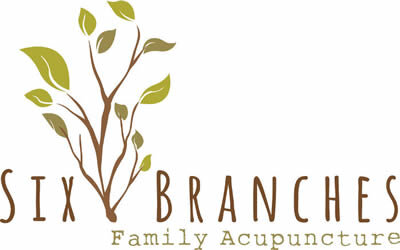OMG, my acupuncturist says I have Liver Qi Stagnation!!??! OK, relax, it's nothing to go running to your MD about. People hear this from acupuncturists all the time. Liver Qi stagnation is really TCM's way of talking about the presence of stress in the body.
Read moreYou Don't Have To Run A Marathon
Whether you have low back, neck, or shoulder pain from sitting at the computer, or acute knee pain from pounding the pavement too hard, Tai Chi and Qi Gong are two systems of exercise that get your Qi and blood moving, with great benefits for physical and mental health and recovery from pain.
Read moreBooks from the library: The China Study
Since we've all just recovered from the Thanksgiving Turkey, only to gear up for the Christmas Goose/Chanukah brisket, I thought I'd share this very important book with you.
The China Study tells the story of T. Colin Campbell, PhD, a prominent researcher in nutrition science who, over 30+ years of studying the effects of diet on cancer, has come to the conclusion that eating animal-based protein (meat, eggs, and dairy) is at the root of the "diseases of affluence" that afflict our society.
His work began in the 1970's by studying carcinogenic toxins, but he quickly began to discover the importance of diet in the development of cancer. Many people go to great lengths to avoid toxins in their food - buying organic, avoiding nitrates in meat, or styrofoam or BPA in food packaging. Dr. Campbell's research showed that more important than the presence of toxins is the presence of excess animal-based protein, which actually enables the damaging effects of toxins to develop into full-blown cancer. These findings led Dr. Campbell to get funding for the China Study, which was a broad-scale study that gathered information on the eating habits and health outcomes of people in different parts of rural China. The book goes into all of these findings and outcomes in detail, so I won't summarize all the evidence here, but Dr. Campbell makes a very strong case for eating a plant-based diet. He also uses the last part of the book to detail his experiences and frustrations with the Industry of food and food science.
Dr. Campbell is advocating for a plant-based, whole-foods way of eating. He is not talking about being vegan for the sake of the animals or for its lower environmental impact. He is not talking about being a vegetarian who eats a lot of refined carbohydrates. He does suggest eliminating all animal-based protein as a recipe for health and longevity, but he doesn't find it all that important if your vegetable soup might have a chicken stock, or your whole wheat bread has a small amount of dairy in it. According to Dr. Campbell, it's more important that a) you don't have a burger or pour a cup of milk in your cereal everyday and b) you are eating whole foods: whole grains, legumes, vegetables and fruits.
Now, the times when I have walked away from dairy have been some of the healthiest times in my life. However, I was once a vegetarian and I have to say, forsaking meat entirely didn't work for me. There are just certain times when I crave meat. Chinese Medicine, also, doesn't advocate for everyone to give up meat entirely. In TCM, meat has a warming, yang energy. For people with certain imbalances, eating meat is actually seen as therapeutic. But like a therapeutic drug, even people with those imbalances don't need it everyday. When consumed in excess, that warming, yang energy could also fuel some undesirable processes and create imbalances.
Let's remember that TCM theory developed at a time when people didn't have access to meat on a regular basis. People at that time were often undernourished and working physically all day long. Until fairly recently, no one in China was eating a lot of meat on a regular basis, certainly not daily as we do in North America. As The China Study discovered, as meat consumption in China has risen, so have the rates of all the major diseases we see in the US today, such as cancer, heart disease, and diabetes. The fact is that most omnivorous people in North America are eating way too much meat, eggs, and dairy.
I prefer a flexible approach to eating that takes my cravings into account, but The China Study makes a very compelling case for cutting meat and dairy out of most of my meals and it's a must-read if you're interested in health. I'm reminded of a mantra from another great book, Michael Pollen's Food Rules: an Eater's Manual:

*Eat food (real, whole, not processed)
*Not too much
*Mostly plants
Have other books you'd like to suggest for our bookshelf? Feel free to leave a comment here!
Laughter Is Good For The Heart ... but you knew That
One of the main tenets of Chinese Medicine is that our emotions play a role in our health and physical functioning. In the last few decades, Western science has begun to understand this idea in a number of ways, whether it's shown how stress affects the body, how anger and depression keep people from recovering faster, or that laughter is good for you.
In TCM, the emotion that belongs to the Heart is Joy. We all know that Joy can help to heal the heart. (On the other side of the spectrum, too much joy (ie. mania) can also injure the heart fluids.) In the Western medical world, Michael Miller, a researcher at the University of Baltimore Medical Center, has researched joyful experiences, and how they help the heart function better. In one study, Dr. Miller found that people with heart disease were less likely to find humor in situations, to recognize humor, or use it to get out of uncomfortable situations. They generally laughed less, even in positive situations and they displayed more anger and hostility. In another study, he looked at the effects of listening to (self-selected) joyful music vs. anxiety-producing music. He found that listening to anxiety-producing music constricted the blood vessels (making the heart work harder to circulate the blood and raising blood pressure), while listening to joyful music opened the blood vessels (easing the load on the heart muscle and lowering blood pressure).
Now, Dr. Miller has reported on another study, yet to be published, that shows that laughter has similar effects on our blood vessels.
"We want to maintain good vascular health, and we do that by maintaining a good diet and good regular physical activity, but it turns out that emotions also play an important role here," Miller recently told the media during a morning press conference at the European Society of Cardiology Congress (2011).
These researchers promoted laughter by showing movies or segments from Saturday Night Live to really make people laugh. They also screened intense segments of dramatic movies, such as Saving Private Ryan. After each movie, endothelial function was measured in the blood vessels. After watching the scene from Saving Private Ryan, blood vessels constricted by as much as 30% to 50%, whereas vasodilation occurred when investigators measured vascular function in subjects watching the comedies. They also observed that vasoconstriction and vasodilation can occur quickly, with the funny movies reversing blood-vessel contraction that occurred after watching the stressful D-Day scene. They found that the effects of laughing for 10-15 minutes last in the body for up to an hour and can have similar effects to exercise for heart health.
Maybe this all seems obvious. Even if TCM has been saying this for 2,000 years, the more Western Medicine recognizes the ways that emotions affect our health, the better!
(Photo credit: Michael Kuhn)
Fiber facts
High-fiber diets are recommended for prevention of all kinds of health issues, including Type II Diabetes, metabolic syndrome, high cholesterol, heart disease, and colorectal cancers. We have been hearing about fiber for decades, but eating enough fiber is so important to our health that the basics bear reviewing.
There are essentially two kinds of fiber: water-soluble and water-insoluble.
Insoluble fiber is important for promoting bowel movements and maintaining bowel health. This is incredibly important, not just for comfort-sake (as anyone who has been constipated will tell you) but also because bowel movements are one of the main ways that our bodies excrete toxins from the body.
Soluble fiber has many important effects as well. It has been shown to:
lower blood cholesterol by lowering low-density lipoproteins (LDL - the cholesterol you want Less of).
control blood sugar by slowing the absorption of sugars. (This is why eating an apple won't spike your blood sugar levels as high as drinking apple juice, which has all the fiber removed.)
help with weight loss by providing bulk to a meal with less calories as well as requiring more chewing time for each bite, making it harder to over-eat.
Getting more fiber actually isn't that hard to do and just involves a few mindful choices at the grocery store and in your meal planning. Click here for tips on getting more fiber in your daily diet.
Easy Ways to Add More Fiber to your Diet
Fiber is an important part of our diet for many reasons. The American Dietetic Association recommends that adults eat 20-35 g of fiber a day. When you consider that one apple only has 3 grams of fiber, 35g may seem like an unreachable goal, but fear not, because it actually isn't as hard as it seems, and it doesn't require drinking your grandfather's gritty fiber supplement! These are a few guidelines to keep in mind when you're grocery shopping to help you increase your fiber intake:
Eat more beans and lentils, by far the highest source of fiber in our diet. Substitute beans for meat a few days a week.
Choose whole fruits instead of fruit juices.
Choose whole grains such as brown rice, quinoa, barley, and millet instead of processed breads, pasta, and couscous (which is really a pasta)
Choose high-fiber, whole grain breads such as whole wheat or European-style bread (this bread makes delicious toast)
Choose a high-fiber cereal such as Kashi Go Lean! Crunch, or Fiber-One.
Buy high fiber snacks such as carrots, snap peas, almonds, walnuts, and fruit
Eat your vegetables! There are many ways to make vegetables taste good. Check out this simple greens recipe from Debra Zambetti's blog, Savor Life.
To help you see how it's actually not that hard to eat 35 g of fiber in a day, I've compiled 2 sample days of fiber-containing foods. Even if you don't eat this way everyday, it's easy to throw an apple and some almonds in your bag to munch on at work instead of hitting the vending machine. Small changes in the choices you make can have big effects on your health.
Sample combinations for a day’s worth of fiber:
Breakfast: Kashi Go Lean Crunch cereal 9 g
(sprinkled with) 1 tsp ground flax seeds 2 g
1 serving Almond milk 1 g
Lunch: your choice of sandwich on
2 slices whole wheat bread 6 g
1 oz roasted almonds 3.3 g
1 medium apple 3.3 g
Dinner: 1 cup brown rice 3.5 g
1 serving lentil stew 6 g1
cup steamed broccoli 3 g
Total fiber = 37.1 g
____________________________________________
Breakfast: 1 Mestemacher sunflower bread 6 g
(toasted, with) 2 Tbsp almond butter 3 g
1 medium banana 3 g
Lunch: bean salad 1 cup (green/yellow/kidney) 6 g
Tabouli salad 1 cup 6 g
Dinner: 1 c brown rice 3.5 g
1/2 c black beans 7.5 g
1 medium tomato diced 1.5 g
1/4 avocado diced 2.5 g
Total fiber = 39 g
Of course, this may not be all you eat in a day, but here you can see that it actually isn't that hard to get a good amount of fiber on a daily basis.
[As a point of reference, here are a few common high fiber foods with their fiber content:
]Kidney beans 8.2 g per 1/2c
Lentils 7.8 g per 1/2c
Black beans 7.5 g per 1/2c
Sweet potato (medium) 4.8 g
Apple (medium) 3.3 g






